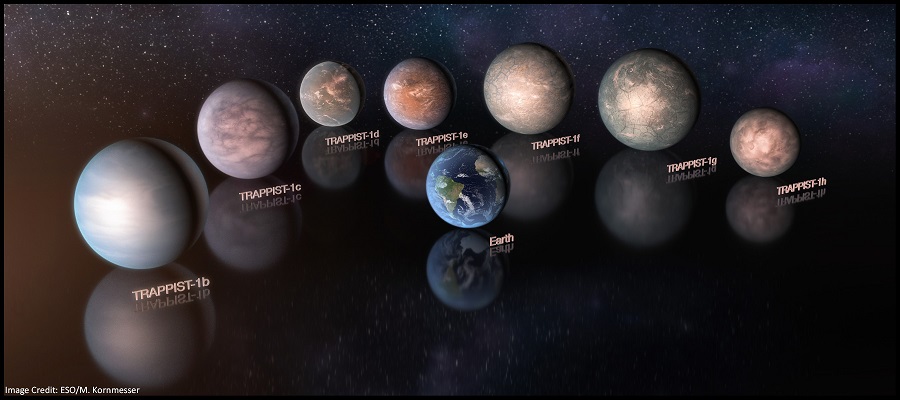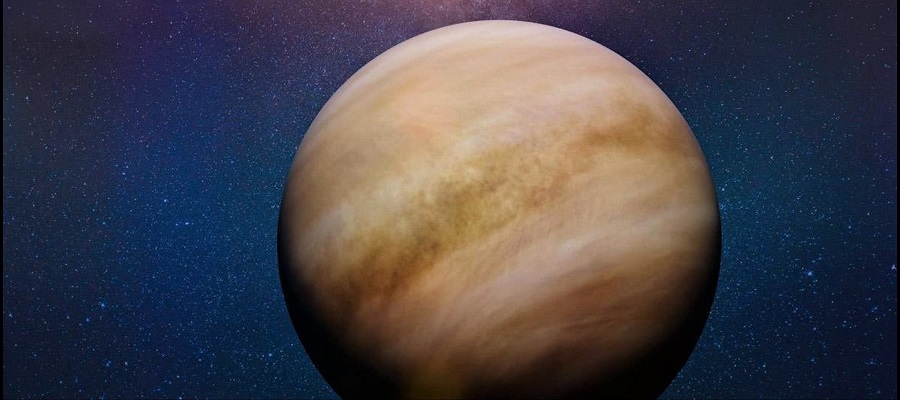Welcome to our Winter 2021 Newsletter, the first in a new series of quarterly updates focused on highlighting our program members’ latest and greatest scientific publications and progress!
In this edition you can learn about a powerful new technique to measure the mass of small exoplanets and learn about their interiors, as well as new studies to rigorously test claims that a possible sign of life, phosphine, was discovered in the Venus atmosphere. And there’s more science, as well as faculty, student and alumni news

Refining Key Properties of TRAPPIST-1 Planets
A team of astronomers led by UWAB Professor Eric Agol (Astronomy) spent the last 4 years making numerous observations of the TRAPPIST-1 system and were able to use that data to greatly refine key properties of the planetary system and have helped pave the way for better and future observations of the planets using the James Webb Space Telescope.
Read All About their Work Here >>
Science in Action: Challenging the Phosphine on Venus Claim
In September 2020 a team led by British researchers published an apparent detection of phosphine in the clouds of Venus. Now a team of researchers from the Virtual Planetary Laboratory, and led by recent UWAB graduate Andrew Lincowski and UWAB Program Director Victoria Meadows, have conducted a follow-up analysis of both the discovery data and its interpretation as being due to phosphine, and have come up with an alternative explanation: that the signal purported to be phosphine is more likely sulphur dioxide.
Read All About their Work Here >>
Program News
- Spring 2021 Colloquium Series Announced
- Eliah Overbey Earns Graduate Certificate in Astrobiology
- Prof. Jodi Young Awarded 2021 Sloan Research Fellowship
- Prof. John Baross Honored in NASA Calendar
- In Memoriam: Prof. Robert Winglee (1958-2020)
Science Updates
- To Find an Extraterrestrial Civilization, Pollution Could Be the Solution
- Is Potassium a Key to Understanding the Ocean’s Past?
- Astronomers Document the Rise and Fall of a Rarely Observed Stellar Dance
- If a Rocky Planet Has a Lot of Methane in its Atmosphere, Life is the Most Likely Cause
- How the First Life on Earth Survived its Biggest Threat — Water
Alumni Updates
- Ken Williford Gives Public Presentation on Mars 2020 at LPSC
- Tyler Robinson Receives 2021 Cottrell Scholar Award
- Steven Sholes Started Postdoc Position at JPL working on Perseverance Rover
Support our Program
We would like to send a heartfelt thank you to everyone who has supported our program over this past giving season! Did you know that even a small donation can have a big impact? One of UWAB’s goals, and biggest successes, has been in building a close-knit, collaborative, community of interdisciplinary scientists, while providing unique, horizon-expanding education and scientific activities for our students. Donor funding helps us accomplish this goal by expanding student access to workshops, field work, and conferences, and also by providing refreshments for social and networking events.
Use the secure, online portal to support UWAB today.



